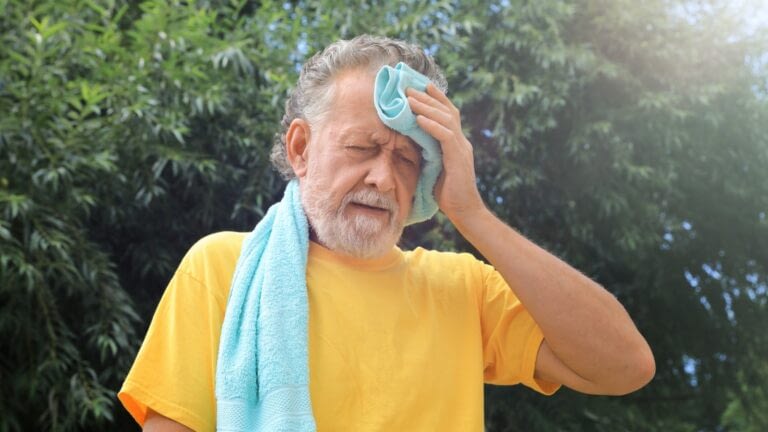Your Guide to Summer Heat Safety

The importance of enjoying the heat of summer safely cannot be overstated, especially when we are witnessing a trend in worldwide record-breaking temperatures. The risks associated with these rising temperatures can be severe without critical safety measures. With National Heat Awareness Day approaching at the end of May, people can have access to important safety and health information that will allow them to enjoy the summer with little danger.
The Importance of Heat Awareness
Heat-related illnesses pose a significant threat to public health, particularly during the summer months when temperatures soar. Specifically, it is critical to take measures by being vigilant and preventing the following heat-related illnesses:
Heat Exhaustion: Characterized by heavy sweating, weakness, dizziness, nausea, headache, and rapid heartbeat, heat exhaustion occurs when the body loses too much water and salt due to excessive sweating.
Heat Stroke: A more severe condition than heat exhaustion, heat stroke happens when the body’s temperature control system fails, leading to a dangerously high body temperature. Symptoms include confusion, fainting, seizures, and hot, dry skin.
Heat Cramps: Painful muscle cramps occur during or after intense physical activity in hot conditions, and heat cramps result from dehydration and electrolyte imbalances.
Heat Rash: Also known as prickly heat, heat rash occurs when sweat ducts become blocked, leading to red, itchy bumps or blisters on the skin.
Statistics on Heat-Related Illnesses
While statistics on heat-related illnesses vary depending on geographic location and weather patterns, they underscore the severity of the problem. According to the Centers for Disease Control and Prevention (CDC), between 2018 and 2020, there were 3,066 deaths caused by heat-related issues. The highest percentage of these deaths (19%) happened among people aged 55 to 64 years old, while the lowest percentage (1%) occurred in children aged 5 to 14 years.
Among all age groups from 5 to 14 years old to 55 to 64 years old, the percentage of heat-related deaths increased with age, and then it decreased among people aged 85 years and older (7%). About 2% of heat-related deaths were among infants younger than one year old, and 4% were among children aged 1 to 4 years old.
Tips for Preventing Heat-Related Illnesses
To stay safe and healthy during the summer months, follow these tips for preventing heat-related illnesses:
Stay Hydrated: Drink plenty of water throughout the day, even if you don’t feel thirsty. Avoid caffeinated and alcoholic beverages, as they can contribute to dehydration.
Limit Outdoor Activities: Whenever possible, limit outdoor activities during the hottest parts of the day, typically between 10 a.m. and 4 p.m. If you must be outdoors, take frequent breaks in the shade or air-conditioned spaces.
Dress Appropriately: Wear lightweight, loose-fitting clothing in light colors to help reflect sunlight and keep your body cool. Use hats and sunglasses to protect your face and eyes from the sun’s harmful rays.
Use Sunscreen: Apply sunscreen with a high SPF rating to protect your skin from sunburn. Reapply sunscreen every two hours, especially if you’re sweating or swimming.
Seek Shade: When outdoors, seek shade whenever possible to avoid direct exposure to the sun. Use umbrellas, trees, or other structures to create shade if necessary.
Stay Cool Indoors: Spend time in air-conditioned spaces such as malls, libraries, or community centers during periods of extreme heat. If you don’t have air conditioning at home, consider visiting a cooling center or public pool to stay cool.
Check on Vulnerable Individuals: Keep an eye on elderly relatives, neighbors, and individuals with chronic medical conditions, as they may be more susceptible to heat-related illnesses. Offer assistance if needed and encourage them to stay hydrated and cool.
As the summer months approach, it’s essential to prioritize your safety and well-being. Heat-related illnesses can result in conditions requiring expensive medical treatment. Fortunately, our agents can assist you with questions about your health insurance coverage. Reach out today, and let’s ensure you have a summer filled with fun and good health.







